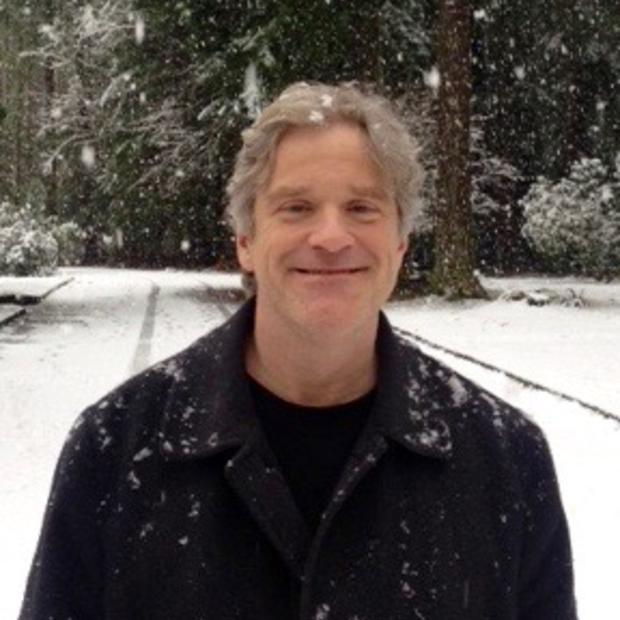The "Lazy B" is in our bones.
From William Boeing's 1916 B&W Bluebill to Rosie the Riveter and the B29 Superfortress. From Tex Johnston's 1955 barrel roll to the the Boeing Bust inspiring the infamous billboard, "Would the last person who leaves Seattle please turn out the lights?" From the 2001 move-to-Chicago sucker punch to the more recent Air Force tanker competition:
Boeing defines us.
If we think of the Lazy B as an expression of Northwest values, then the only time the words "Boeing" and "torture" should fall together is to describe Friday afternoons for a mid-level manager.
And yet, a Boeing subsidiary has been entangled in a lawsuit accusing it of helping the CIA fly prisoners to black sites overseas, a policy known as extraordinary rendition. The prisoners were subsequently tortured by bone-breaking friendlies in Afghanistan, Morocco and Egypt.
Last month, the Ninth Circuit Court of Appeals rejected the lawsuit on grounds that it could reveal government secrets. The New York Times quotes Judge Raymond Fisher describing the case as "a painful conflict between human rights and national security." The ACLU, backing the plaintiffs, has vowed to appeal to the U.S. Supreme Court.
In practice the Ninth Circuit ruled that Boeing and its subsidiary, Jeppesen Dataplan, are within their right to hide behind their status as simply the contractor carrying out the government's plan. It was the CIA, after all, that stage-managed the rendition and torture. And few multinationals delight in saying, "I ain't gonna help ya" when the CIA comes knocking.
Following President Bush's example, the Obama Administration invoked the state-secrets privilege, a legal catchall that puts the brakes on justice to safeguard national security. The judicial doctrine dates to a 1953 U.S. Supreme Court ruling, United States v. Reynolds. That case involved the widows of victims of a military airplane crash who were denied accident details for fear of compromising top-secret intelligence. It's a doctrine that's been applied legitimately and, in all likelihood, stretched and extended for expediency. On Sept. 8, The New York Times editorial page weighed in:
The state secrets doctrine is so blinding and powerful that it should be invoked only when the most grave national security matters are at stake — nuclear weapons details, for example, or the identity of covert agents. It should not be used to defend against allegations that if true, as the dissenting judges wrote, would be “gross violations of the norms of international law.” All too often in the past, the judges pointed out, secrecy privileges have been used to avoid embarrassing the government, not to protect real secrets. In this case, the embarrassment and the shame to America’s reputation are already too well known.Boeing took the legal and fiscally prudent route. While not technically liable, however, the company was morally wrong to abet torture. Transporting prisoners for purposes of bone-breaking also runs counter to the company's stated values. The Boeing Company Code of Basic Working Conditions and Human Rights declares that "Boeing is committed to the protection and advancement of human rights in its worldwide operations..." It's a statement consonant with the Universal Declaration of Human Rights and the Global Sullivan Principles of Social Responsibility. And it doesn't come with an asterisk and footnote stating "except to secretly jet prisoners overseas for Medieval-style beat-downs."
So the question looms: Can Boeing make amends for enabling torture while upholding its fiduciary responsibility to shareholders? Well, maybe.
There is the Nick Naylor strategy and there is the sacrament of (qualified) penance.
The Naylor approach, named for the protagonist of Chris Buckley's 1994 novel Thank You For Smoking, involves a cynical manipulation of the principle of Corporate Social Responsibility. Naylor labored for the sweetly titled "Academy of Tobacco Studies" that denied a link between smoking and health.
Boeing could ramp up its PR engine or establish a bogus entity that celebrates its partnership with the CIA. Call it the "Academy for Patriotic Rendition." It would be an entertainingly shallow response.
The second alternative, a qualified-penance approach, aligns with Boeing's stated values. The company could sidestep the torture question ("Er, that's being adjudicated") and point to its investment in substantive human rights advocacy and scholarship. Drop a few million bucks and create an unrestricted endowment at Amnesty International or Human Rights Watch or the University of Washington's new Center for Human Rights (obnoxious-bias alert: I'm a Center booster). The company might also double its humanitarian airlifts, a laudable program that's benefited thousands of disaster victims around the country and the world.
No one in Western Washington wants to tear down Boeing. Jet City is shorthand for the Lazy B. It's a generous company. It pays mortgages and gins the economy.
All the while, until Congress and the Executive branch find a way to mitigate the overuse of the state secrets privilege, let's encourage a Boeing payout. Yes, it's something like an indulgence in Catholic theology. It's cynical, it bypasses a direct admission of guilt, and it denies justice to the plaintiffs in the extraordinary rendition case.
Yet we live in an imperfect world with imperfect justice. Better to reach an approximation of justice than no justice at all.


